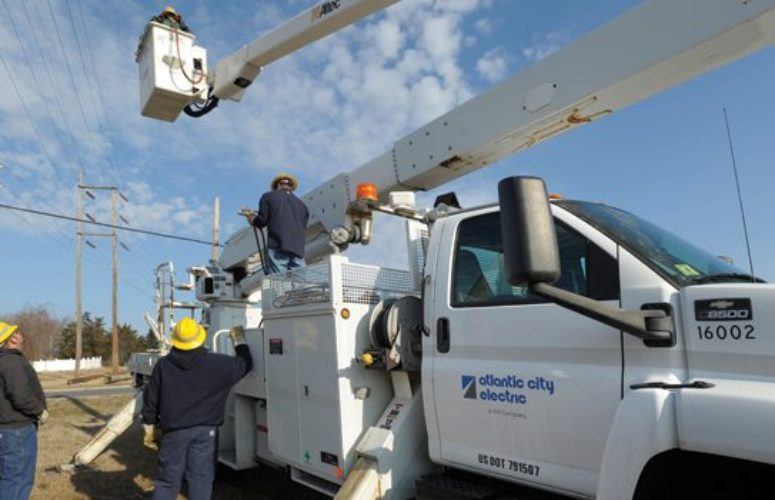
Turning the Spotlight on the NJUA
How Energy Initiatives Generate Economic Growth
By Ilene Dorf Manahan, Contributing Writer On Sep 26, 2014We get so used to it: Flip the switch and the lights go on. Change the thermostat, and violà: heat or air conditioning. We count on our electric and gas utility companies to ensure that’s the case – 24/7/365, and regardless of how extreme the weather is.
Established in 1915, the New Jersey Utilities Association (NJUA) is a statewide trade association for investor-owned utilities that provide water, wastewater, electric, natural gas and telecommunications services to New Jersey residences and businesses. The 16 member companies deliver their respective services to more than 5 million residential and nearly 1.3 million non-residential customer accounts across the state. Most of the member companies have been in existence for more than 100 years and are dedicated to partnering with the state in strengthening the state’s business climate. Individually, they also are driving forces behind New Jersey’s economy. They:
- employ more than 27,000 union and non-union men and women for a combined payroll in excess of $2 billion annually;
- own and operate physical infrastructure valued at more than $27 billion;
- contribute nearly $638 million in annual revenues to local and state governments through gross receipts, corporate business, property and various excise taxes; and
- donate more than $15 million to New Jersey-based charitable organizations.
Public Service Electric and Gas (PSE&G), the state’s largest utility, invested more than $1.6 billion in electric transmission reinforcement and upgrades in 2013. Plans are to invest another $4 billion between 2014 and 2016, including work on the Susquehanna Roseland Project, a 500kV transmission line from Pennsylvania to Roseland.
In June, PSE&G’s Burlington-Camden Reliability Project began delivering increased electric capacity, needed in South Jersey. The $390-million North Central Reliability Project upgraded transmission lines in Essex, Morris, Union, Warren and Middlesex counties. The company also reached a settlement with the state’s Board of Public Utilities (BPU) staff that would result in more than $1 billion of additional investment through PSE&G’s “Energy Strong” program. Designed to protect and strengthen its electric and gas systems against severe weather conditions, the work is expected to create some 2,000 jobs.
In its 13-county service area, Jersey Central Power & Light (JCP&L) has invested more than $2 billion in capital improvements since 2001; it plans to spend an additional $251 million in 2014 for infrastructure expansions and enhancements and to maintain service reliability. Major projects include planning and completing transmission lines in Monmouth, Ocean and Morris counties, completing a smart grid modernization project in Morris County, and constructing a new substation in Hunterdon County.
Over the past five years, Atlantic City Electric (ACE) has invested $685 million in its electric system. As a direct result, ACE reports, customers have experienced shorter and less frequent power outages. The utility plans to make further infrastructure investments to bolster service reliability and system protection from extreme weather.
Rockland Electric Company serves an estimated 7,750 electric customers in the Northern portion of the state. To accommodate increased load growth, enhance service reliability and further protect the system from severe storms, Rockland has begun a $20-million, four-year electric infrastructure improvement project.
The NJUA’s gas distribution member companies also are making notable investments in their systems. In July, New Jersey Natural Gas (NJNG) received approval from the BPU for its New Jersey Reinvestment in System Enhancements (NJ RISE) program. Through NJ RISE, NJNG will invest $102.5 million for six capital projects designed to enhance the resiliency of its natural gas distribution and transmission systems and help mitigate the impact of major weather events. NJNG filed for these upgrades in response to the BPU’s March 2013 Board Order seeking proposals to support and protect New Jersey’s utility infrastructure, specifically to better withstand the effects of future storms.
Additionally, through its SAFE (Safety Acceleration and Facility Enhancement) program, NJNG plans to replace nearly 300 miles of cast iron and unprotected steel mains. Commonly used by the industry prior to 1970, these materials are prone to corrosion and leaks and account for over 95 percent of all leaks found in NJNG’s system.
Similarly, South Jersey Gas (SJG) invested more than $235 million during 2013 – primarily to replace older bare steel and cast iron pipes. And with the impact of Superstorm Sandy still fresh, SJG filed a petition with the BPU in September 2013 to accelerate $280 million in system improvements and protections. The program includes upgrading approximately 179 miles of distribution lines along the barrier islands.
Over the past 10 years, Elizabethtown Gas invested more than $200 million on pipeline infrastructure improvements. In the next four years, it plans to spend another $115 million to modernize, expand and reinforce its facilities.
All of these utility companies recognize that a high quality infrastructure is a critical factor when companies are deciding where to locate, relocate and grow.
“New Jersey’s utility companies are investing heavily in the state’s infrastructure to reinforce a positive business climate and reliable, resilient service,” states Andrew Hendry, NJUA’s president. “Timely recovery of the associated costs is critical to this effort, and we’ll continue to work with our regulators towards this goal.”



